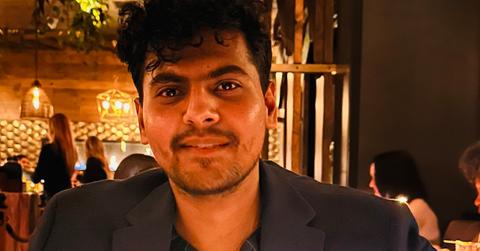The Genomics Visionary Building a Global AI Engine for Drug Discovery — Starting with India, Designed for the U.S.
After leading AI-genomics initiatives at Illumina and conducting cancer research in Arizona, Bageerathan returned to India in 2025 with a bold mission: to build the missing infrastructure for population-specific precision medicine in India using AI.
Updated June 25 2025, 12:29 a.m. ET

As the world moves toward personalized medicine, a quiet revolution is emerging from an unlikely place: Chennai, India. Vignesh Bageerathan, a genomic AI innovator trained in the U.S. and mentored by leaders at Illumina, Bayer, and the University of Arizona Cancer Center, is building a technology platform that may radically change how we discover and personalize drugs, not just in India, but in underserved populations around the world.
His startup, Vian OS, began as a genomics clinical decision support platform but has since evolved into something far more ambitious: a multi-agent, LLM-native drug discovery engine, trained on global omics data and refined through India’s complex, diverse genomic landscape.
“India has the world’s most underrepresented genomic diversity in global drug pipelines.” Bageerathan says. “But the AI system we’re building isn’t just for India, it’s designed to scale across any population that Western algorithms leave behind, including in the United States.”
A Personal Mission with Global Stakes
After leading AI-genomics initiatives at Illumina and conducting cancer research in Arizona, Bageerathan returned to India in 2025 with a bold mission: to build the missing infrastructure for population-specific precision medicine in India using AI. What he didn’t expect was that this same infrastructure could directly support U.S. efforts to expand health equity, rare disease research, and population-specific trial design.
“The U.S. has over 6 million South Asian Americans and tens of millions of underserved patients from diverse backgrounds. Yet the majority of AI-based drug discovery models today are trained on European or Western datasets. That creates a serious gap in efficacy, equity, and cost,” Bageerathan notes.
The Tech: Multi-Agent LLMs Built for Real-World Genomic Complexity
The Vian OS platform uses proprietary domain-specific language models and intelligent agents that simulate the way scientific teams collaborate, reasoning across genomics, transcriptomics, proteomics, and clinical metadata. The architecture is trained on large-scale global data like TCGA and then fine-tuned using Indian SNP panels from programs like IndiGen and GenomeAsia100K.
But the agents themselves are generalizable, designed to learn from and adapt to any underrepresented patient population, including African Americans, Latino Americans, and rare disease cohorts in the U.S.
“This isn’t just an Indian engine. It’s a system designed to think beyond Western defaults, and that makes it uniquely valuable for U.S. research institutions, pharma pipelines, and federal initiatives like the NIH’s All of Us Program or ARPA-H,” says Bageerathan.
Designed for Global Deployment, With U.S. Relevance at Its Core
Though Vian OS is incubated at IIT Madras and launching its first pilot cohort in India, Bageerathan is already in early conversations with U.S.-based genomics labs and precision medicine researchers to adapt the system for:
- U.S. FDA drug repurposing efforts
- Biopharma pipelines targeting diverse cohorts
- NIH-funded rare disease AI screening initiatives
- Academic collaborations around bias correction in biomedical LLMs
The goal? To position Vian OS as a globally interoperable, U.S.-ready infrastructure layer for population-aware drug development.
About the Founder: A Rare Bridge Between Two Genomics Worlds
Vignesh Bageerathan holds a Master’s in Data Science and Engineering Management from Northeastern University and a B.Tech in Biotechnology. He has filed multiple patents in AI-based multi-omics modeling, conducted cancer transcriptomics research in the U.S., and built software for some of the world’s largest genomics organizations.
He is also actively publishing educational content to democratize genomics education, and his work has already been viewed by over 1 million people globally through Vian Media, an AI-powered biotech storytelling channel.
“The U.S. shaped my thinking. India sharpened my purpose. Now I want to use that hybrid insight to solve precision medicine, not just for one country, but for everyone,” he says.
What’s Next
Vian OS will launch its MVP in mid-2025, featuring a drug-repurposing pipeline validated on Indian genomic cohorts. But from the start, the engine will be ready to ingest U.S.-based datasets and collaborate with American institutions.
With three patents filed, pilot hospitals secured, and a cross-functional team of engineers, bioinformaticians, and clinical experts, Bageerathan is now preparing to raise pre-seed investment for a globally-scalable version of the platform.